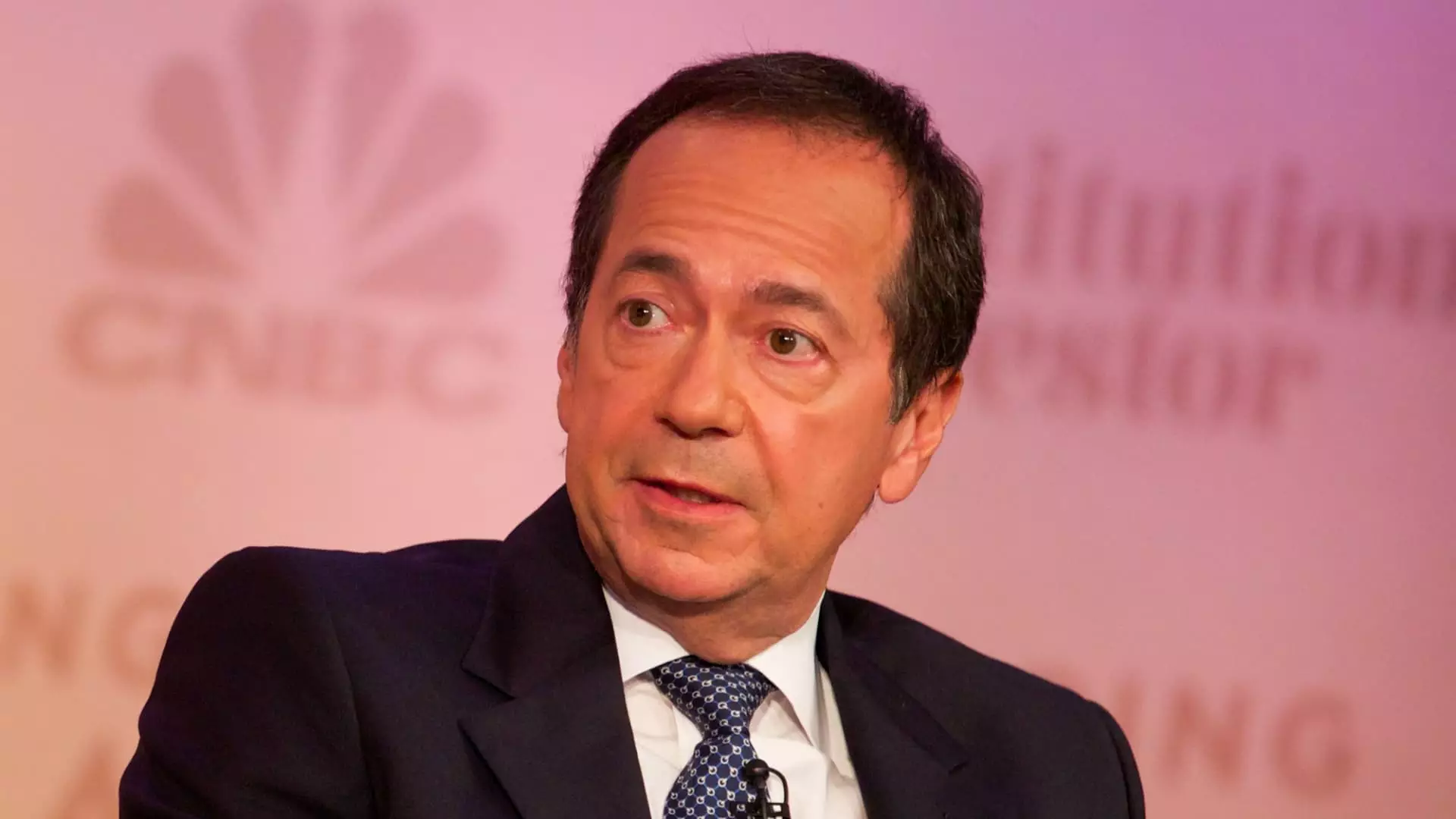Hedge fund billionaire John Paulson has long been a polarizing figure in the financial world. Best known for his audacious bet against the housing market during the 2008 financial crisis, Paulson has now emerged as a vocal critic of proposed tax reforms put forth by Vice President Kamala Harris. In a recent interview, Paulson forewarned that these tax plans could precipitate a catastrophic downturn in both the stock market and the broader economy. His warnings, paired with his history of monumental financial maneuvers, merit a close examination of the implications surrounding tax reforms, particularly in a contemporary economic context.
The Tax Controversy: A Closer Look at Proposed Changes
At the heart of Paulson’s concerns lie specific tax proposals aimed at increasing the corporate tax rate from the current 21% to 28%, along with a significant hike in the capital gains tax—nearly doubling from 20% to 39%. Moreover, the proposal includes a contentious tax on unrealized capital gains of 25% for households with substantial wealth. Paulson believes that if these reforms were enacted, the resulting strain on investor sentiment could lead to a sales frenzy across various asset classes, including homes, equities, and collectibles.
The notion of taxing unrealized gains is particularly contentious and has drawn skepticism from various quarters, including some close to Harris. Notably, Mark Cuban, a well-known investor and entrepreneur, has openly questioned the viability of such a tax structure. Doubts about the legislation’s passage in Congress further complicate the situation, highlighting the contentious nature of tax reforms within a deeply divided political landscape.
When Paulson articulates the potential for a market crash, he does so within a framework of cause and effect that hinges on investor behavior. He posits that the proposed tax increases could trigger a mass exodus of capital, leading to depressed asset prices. While some financial analysts recognize that elevated corporate tax rates could negatively impact earnings and share prices of S&P 500 companies, they tend to downplay the scale of the downturn that Paulson envisions. This discrepancy in perspectives raises important questions about the true nature of market resilience in response to external economic pressures.
Furthermore, Paulson’s apprehensions extend beyond immediate market reactions; he forecasts an impending recession if the tax changes are implemented. This snapshot reveals a complex interplay of policy, market psychology, and economic indicators that may shape the narrative in the coming years. However, the broader implications also warrant attention—what do these proposed policies signify about the future of fiscal responsibility and economic equity in America?
While John Paulson stands as a formidable voice of skepticism, it is crucial to recognize that not all Wall Street economists share his dire predictions. Some analysts argue that the effects of raising corporate tax rates may be manageable when juxtaposed against robust economic fundamentals. These differing viewpoints spotlight a fundamental tension within financial circles over how to balance corporate taxation, economic growth, and equitable wealth distribution.
Moreover, Paulson’s reliance on tax cuts and strategic tariffs to bolster economic growth can be seen as an extension of traditional capitalist doctrine. However, this stance raises critical concerns about long-term sustainability. While low taxes may create a temporary boost in revenue, the corresponding increase in budget deficits could catalyze deeper fiscal challenges down the line, questioning whether this approach is genuinely beneficial or simply a short-term fix.
As Paulson continues to lend his support to former President Donald Trump, he remains immersed in a dialogue that oscillates between free-market ideals and the socioeconomic pressures of renewal. His beliefs in lower taxes possibly spurring entrepreneurship reflect a time-honored conviction rooted deeply within American capitalist ideology. Yet, the specter of income inequality and fiscal adversity persists, compelling policymakers and cross-sector leaders alike to dig deeper into the nuances of wealth generation, taxation, and economic strategy.
While John Paulson appears to be a staunch advocate for sustainable economic growth, his fears concerning proposed tax reforms emphasize the precarious balance between taxation and market stability. Navigating these turbulent waters presents not only financial challenges but philosophical dilemmas that will undoubtedly shape the economic discourse in the years to come.


Leave a Reply